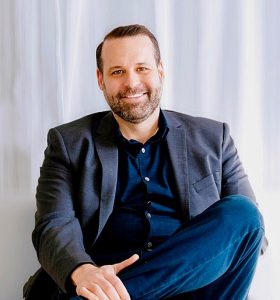Register
Register here
 Presenter: Rafael Cortina
Presenter: Rafael Cortina
Description:
Trauma and addiction intertwine in complex ways, fundamentally altering how individuals experience themselves, their relationships, and their world. Addiction is the long-term consequence of creative adjustments to painful life circumstances that provide a sense of relief by numbing emotional pain or disconnecting the individual from unbearable experiences. While these adaptations initially serve as vital coping mechanisms in a field lacking safety, belonging, and emotional support, lasting healing requires more than managing symptoms. It calls for relational engagement, embodied awareness, and compassionate integration of past experiences within the ever-changing field of relationships and environment.
Gestalt field theory offers an understanding of these challenges. It presents a holistic, process-oriented perspective that recognizes trauma and addiction as phenomena shaped by the entire web of human experience, from intimate relationships to broader social systems. Rather than viewing these challenges as isolated personal failures, this approach examines the complex interplay of interpersonal dynamics, cultural influences, and environmental factors. This workshop delves into practical applications of field theory, demonstrating how shifting our therapeutic lens from individual pathology to the dynamic field can catalyze profound healing and sustainable transformation.
Focus and Key Topics:
This workshop integrates Gestalt relational and field theory to help practitioners support clients moving beyond survival toward authentic connection and integration. We will explore:
The Field Perspective on Trauma and Addiction:
- Trauma and addiction as field phenomena rather than isolated disorders.
- How social, relational, and cultural forces shape trauma responses and addictive patterns.
- Understanding interpersonal and environmental supports/barriers to healing within a client’s lived experience.
Creative Adjustments and Addiction:
- Addiction as a functional creative adjustment rather than a pathology.
- How trauma influences fixed gestalts, interrupting the fluid contact cycle.
- Strategies to support organic transformation by expanding awareness and choice.
Biography:
Rafael Cortina is a licensed marriage and family therapist in the state of California; he is also a master addiction counselor, a certified clinical trauma professional, and a certified Gestalt therapist. As a bilingual therapist (English-Spanish), he has worked in Mexico and the United States, and has more than 20 years of experience working with individuals, couples, families, and groups. He holds a master’s degree in counseling psychology and another in business administration with an emphasis on marketing. Rafael is currently an adjunct faculty member at National University and the acting president of IAAGT.


